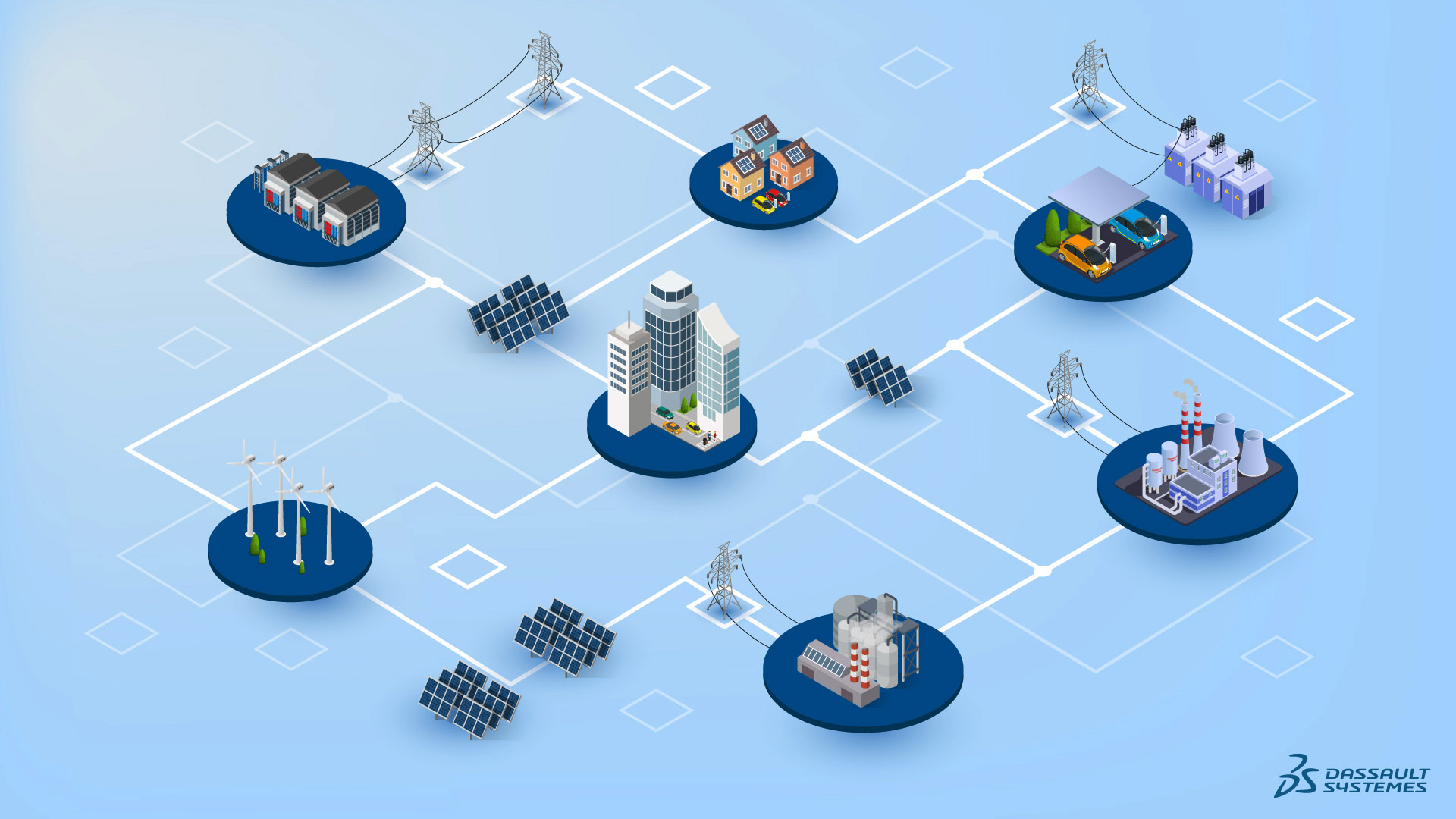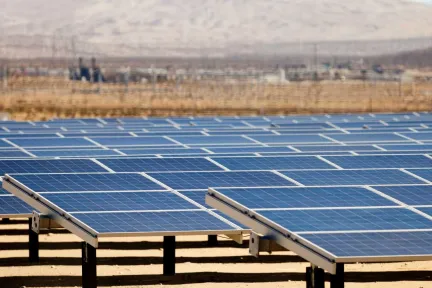ModeliScale
ModeliScale collaborative project brings Modelica to handle large Scale Cyber Physical Systems for the Energy industries in CATIA apps
Europe has to face a new paradigm: energy systems become more and more decentralized, they involve more actors and consumers with sometimes divergent interests. The progressive insertion of new energy production means (with renewables in particular), consumption sources (vehicles chargement) and storage technologies are modifying the architecture of these systems. In order to handle the future energy mix, there is strong need for new modeling and simulation means (ModSim) to design and combine such systems for a better definition and piloting of of their performance.

ModeliScale project aims to enable the Modelica technology to fit for the modeling & simulation of very large models of energy systems, in a multi-mode and reconfigurable context. It considers different time and space scales, multiple sources of energy production (classic and alternative), and various forms of energy transport consumption (buildings, vehicles, storage).
Project Summary
- The challenge
- The workplan
- Expected results
Today; no Modeling and Simulation language and tools has the capability to tackle large scale multi modes systems. Therefore, project aims innovative concepts to handle such systems.
Three main objectives are considered by the consortium :
• Compile and execute large scale models, up to millions of equations
• Handle multi-mode models (from switching from nominal to degraded states, dynamically re configuring according to energy demand (network management, electric vehicle charging stations) or intermittent production (eg. solar)) with a target of 2^80 combined modes and more
• Enable a proper initialization of such large scale multimode models , relying on proper convergence and/or calibration to ensure the correctness of the initial states
Several teams from Inria are working on innovative algorithms and methods, aiming at proposing a new paradigm for the modeling and simulation of cyber-physical systems in general, and energy systems in particular. Prototypes are developed in Dassault Systemes; CATIA/Dymola and CATIA 3DExperience.
Multi physics libraries will address electric, energy storage, heat networks, and buildings thanks to the support of SME’s DPS & Eurobios. The open source EDF DACCOSIM NG co-simulation tool will be enhanced. Statistical and probabilistic methods will be adapted by Phimeca to help initialize and analyze Modelica models.
Demonstrators from EDF and ENGIE major energy providers will evaluate how the current bottlenecks of large-scale simulation are overcome : the whole energy grid city of Vélizy (Paris area) is considered by EDF; while a full heat production plant and district heating network is considered by ENGIE for a Lyon suburban city (Rhone area).
Additionally, CEA Tech research center will evaluate the value related to its multi energy micro grid located in the Alps.
CATIA portfolio will be strongly enhanced with these innovations to be ahead in the field of large scale energy systems Modeling and Simulation, including Dymola technology and 3DEXPERIENCE platform systems apps.
DACCOSIM NG EDF co simulation platform will get the capability to handle simulation of very large power grids (at the city scale).
Modelica open language for systems modelling and the FMI open standard for interoperability will benefit from the project innovative enhancements of this project. Enhancement proposals will be offered to these respective communities.
New energy Modelica libraries will be prototyped for a potential go to market next phase.
Moreover, project outcomes will be generic. So both open Modelica language, FMI standard and implementations will be useful in other industrial sectors such as aeronautics, transportation, buildings and cities.

Open Standards
ModeliScale project is leveraging on Modelica and FMI standards.
The Modelica community has recognized the ModeliScale initiative.
Moreover, ModeliScale outcomes will feed these 2 standards with evolution proposals.

Modelica
The Modelica Association is a non-profit organization with members from Europe, U.S.A., Canada and Asia. Since 1996, it develops coordinated, open access standards and open source software in the area of cyber physical systems.

Functional Mock-up Interface
The Functional Mock-up Interface (FMI) is a free standard that defines a container and an interface to exchange dynamic models using a combination of XML files, binaries and C code zipped into a single file. It is supported by 100+ tools.
French state support
The project is supported by the French Authorities through financial support of BPIFrance and Region Ile de France in the FUI (Fonds Unique Interministeriel).

BPI France
Banque publique d'investissement (BPI) is a French investment bank.

Île-de-France
Île-de-France is the most populous of the 18 regions of France, located in the north-central part of the country
ModeliScale project has been selected by the French competitive clusters: Systematic and Tenerrdis.

Systematic Paris Region
Systematic Paris-Region is an Île-de-France business cluster created in 2005, devoted to complex systems and ICT.

Tenerrdis
Tenerrdis is a French innovative Cluster based in Grenoble.
Key figures & Project Keywords
- Leader : Dassault Systemes SE
- Consortium : 8 French partners
- Domaine : Energy
- Timeline : [Jan 2018, Jul 2021]
- Effort : > 40 Man x Years
- Multi physics, multi scale, multi modes, energy systems, power grid, infrastructure, sustainable
- Modelica , FMI
- CATIA , Dymola, DACCOSIM
- 3DEXPERIENCE


